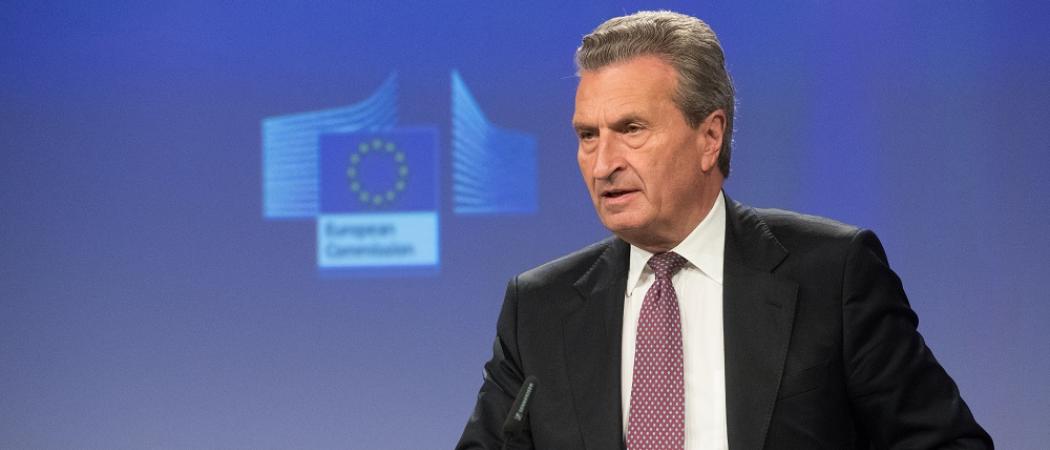European budget chief estimates there’s now a 50-50 chance of agreeing a budget before the May 2019 parliamentary election. Without certainty of future funding, researchers will go elsewhere, he claims

The EU’s budget commissioner Günther Oettinger has warned that researchers will be forced to leave Europe unless there is an agreement between leaders on spending in the next EU budget before May 2019.
“We need to come to a decision through intensive negotiations before the next European elections in May,” Oettinger said on Tuesday. Researchers and companies “need certainty” on the details of the €94.1 billion EU research programme, Horizon Europe, which will run from 2021 – 2027, the commissioner said.
“The sooner, the better. Philips, Siemens and other big European companies need the certainty of continuing major research investments in pharmaceuticals, artificial intelligence and robotics,” said Oettinger. “If we have to wait until 2020 to get agreement, you’ll see many researchers will have left; gone abroad, to Silicon Valley or somewhere else.”
Discussions about the EU’s next common budget running from 2021 to 2027 are still at an early stage but already countries including the Netherlands, Austria and Sweden say the overall €1.279 trillion budget is too big, and Italy, the number four net contributor to EU coffers, has threatened to block it in a row over settling migrants. The new budget requires the agreement of all member countries, as well as the approval of the European Parliament.
50-50 budget chance
The target date for reaching agreement appears difficult in the best of circumstances, with EU countries at loggerheads over spending priorities, and the UK scheduled to withdraw from the EU next March.
The Commission’s budget proposal cuts farm subsidies and regional development aid, which together account for around 70 per cent of the EU budget, and increases spending on research and security.
Member states are resisting pressure from Brussels to rush through the normally lengthy legislative process.
At a meeting in Vienna in July, Europe’s 28 research ministers demanded a more detailed Horizon Europe proposal from the Commission, a request that seems likely to derail efforts to secure accelerated approval of the plan.
The odds of settling this and related budget tussles by next Easter are 50-50, Oettinger said.
If the multiannual financial framework, which makes up around one per cent of EU economic output, is not approved before Parliament elections in May 2019, it will probably fall by the wayside until 2020.
The second part of next year will be “totally lost”, Oettinger warned. “From the end of May to the end of 2019, there is no chance of making progress,” he said.
A slugfest over political posts is expected to dominate the latter part of the year. “Senior management appointments will be at the centre of our discussion. Who is following Juncker? Mogherini? Draghi? Tusk? We will have at least 20 new candidates for the next European Commission and maybe 50 per cent new members of Parliament,” Oettinger said.
A smart Brexit
The Commission is facing a €10 billion hole in its next budget after the UK’s contribution to the coffers ends.
Despite fears that the UK could crash out without agreeing on a future relationship with the EU, Oettinger says he is not worried about the country failing to honour its spending commitments up to 2020.
“We are, for the moment, optimistic that the Brits – whatever are the developments between now and 2019 – are willing to fulfil their obligations. No reason to develop a Plan B,” Oettinger said.
“My expectation is that we will come to a smart Brexit. In our EU-27, I know no one who would prefer a hard Brexit.”





 A unique international forum for public research organisations and companies to connect their external engagement with strategic interests around their R&D system.
A unique international forum for public research organisations and companies to connect their external engagement with strategic interests around their R&D system.